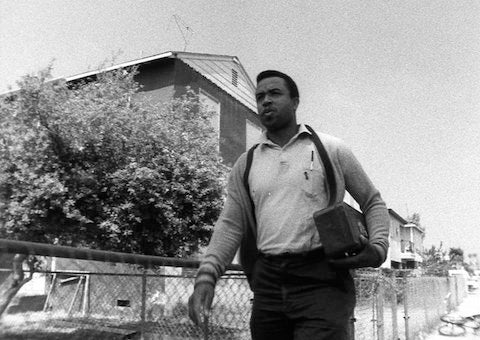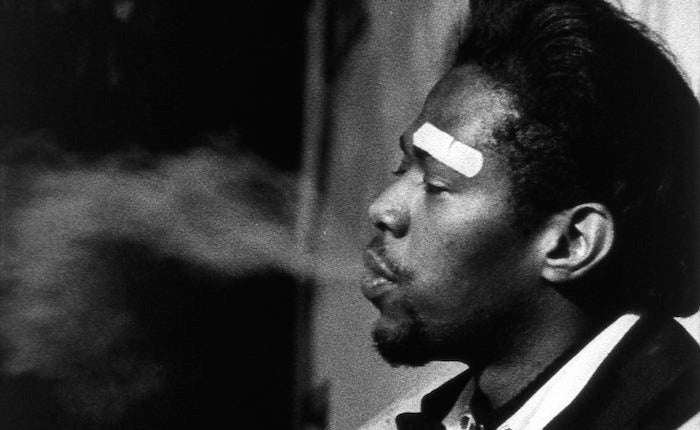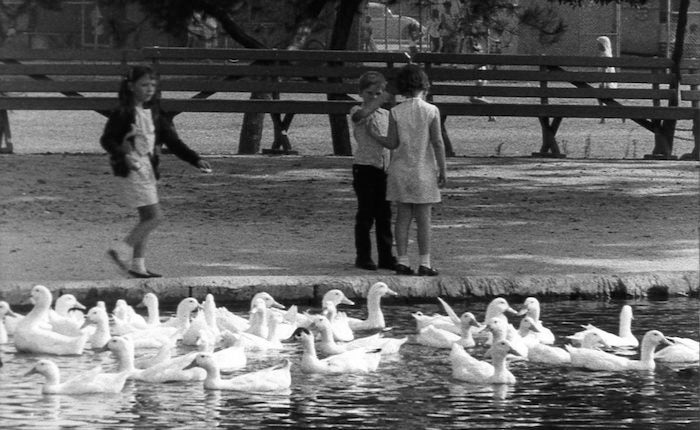
The Savages (1967)
A poignant and empathetic statement against racial prejudice, Alan Gorg’s short film The Savages documents the sights, sounds and voices of the impoverished African-American community of West Venice, Los Angeles in 1967.
The urban rebellion in Watts, California in 1965 marked a turning point in U.S. history, forcing the frustration and pain of over 150 years of systemic institutional racism and oppression of African Americans to the center of national discourse. As major unrest in response to inequality and injustice continued in major U.S. cities into 1967, President Johnson, under his Executive Order, commissioned a bipartisan “National Advisory Commission on Civil Disorders” to examine the underlying causes of the ongoing protests and racial strife in America. Among the many illuminating findings of the resulting “Kerner Commission Report” (named after Commission Chair, Otto Kerner, Governor of Illinois) was a “fundamental criticism” that “the media report and write from the standpoint of a white man’s world. The ills of the ghetto, the difficulties of life there, the Negro’s burning sense of grievance, are seldom conveyed.” This context of lack of media representation illuminates the historical import and research significance of filmmaker Alan Gorg's pointedly titled short film, The Savages, which documents the sights, sounds and voices of the impoverished African-American community of West Venice, California in 1967.

Constructed to prompt discussion and challenge existing prejudices, Gorg's cinema vérité documentary—produced in cooperation with Project Action, a community-based advocacy group—begins with a provocation, as the voice of a white man harshly questions the plight of African Americans over a series of quiet, expressionistic scenes of a well-appointed park in a white neighborhood. This montage is soon sharply juxtaposed against location footage of the stark streets of the West Venice area and the modest homes of its people, visually establishing the disparity between white and black economic realities. As the film progresses, the thesis of the bigoted opening voiceover is gently rebuked by the unfiltered voices and images of the African-American residents of West Venice, including a father with two infant sons working at the fringes of the system to make ends meet, and the despondent youths of the area that spend their days and nights in a pursuit of temporary escape from the untenable conditions imposed by society. Their personal explications of their struggle living in a harsh, unforgiving environment of poverty ultimately reveal that their dreams and aspirations are the same as those held by whites, yet are unobtainable due to institutionalized oppression and the resulting lack of opportunity.

Gorg's artful, direct platform for these stories, and the uncompromising honestly of both his camera and the residents of West Venice, serves to poignantly and empathetically record moving image testimony of this otherwise invisible African-American history, while simultaneously revealing the invalidity and implied savagery of the prejudiced white P.O.V. that begins the film. Upon release the film was awarded first prize at the Mercer College International Film Competition (1968) and was later honored at the Columbus Film Festival (1969) and the American Film Festival (1970). The humanist film stands today as a vital, rare document of the civil rights era. The Savages is also a significant companion piece to Gorg's earlier film on race relations set in Watts, California, the widely acclaimed documentary Felicia (1965), which was named to the National Film Registry by the Library of Congress in 2014.
—Mark Quigley, Television Archivist
The Savages was restored in 2019 by UCLA Film & Television Archive from the 16mm original camera negative, 16mm A/B positive rolls and 16mm track positive. Funding provided by the National Film Preservation Foundation. Laboratory services by The Stanford Theatre Film Laboratory, Audio Mechanics, Simon Daniel Sound, DJ Audio, Inc. Special thanks to Alan Gorg, Marsha Gordon, Mark Quigley.
Watch online:
< Back to the Archive Blog






 Mobile Navigation
Mobile Navigation

